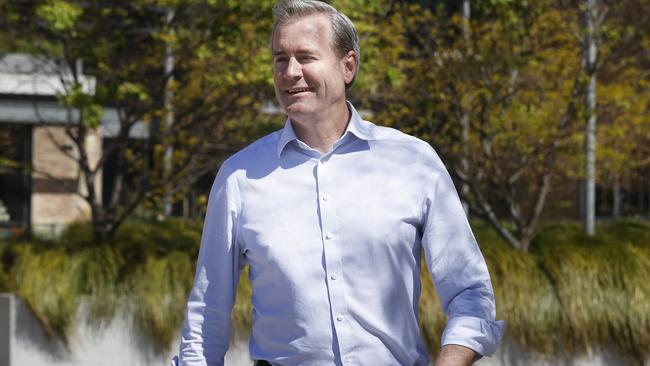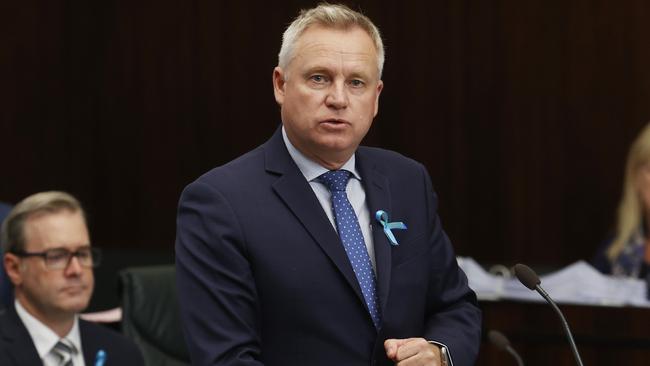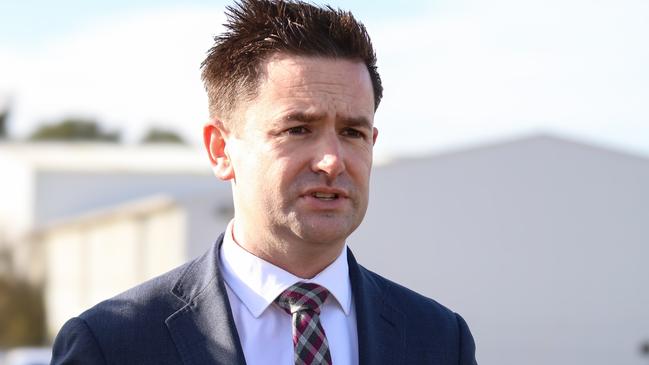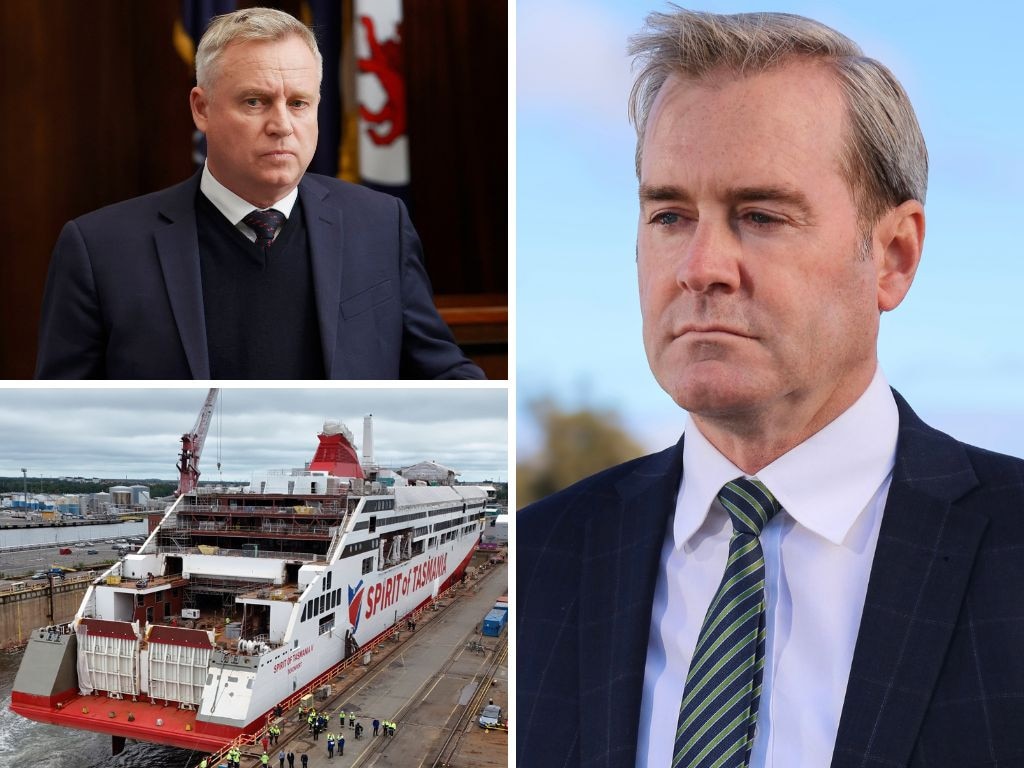Tasmanian Treasurer Michael Ferguson quits cabinet ahead of no-confidence motion
One of the nation’s most senior elected Liberals has quit to head -off a parliamentary political execution, throwing Tasmania’s minority government into turmoil.

Tasmania’s Liberal government must find a new treasurer – just as the state budget is debated in parliament – with incumbent Michael Ferguson quitting to avoid a parliamentary political execution on Tuesday.
Premier Jeremy Rockliff on Monday effectively cut his Treasurer and Deputy Premier loose, indicating Mr Ferguson would resign if, as expected, MPs voted no confidence in him on Tuesday.
Mr Ferguson hours later pre-empted that vote by announcing his resignation, accepting responsibility for a bungled wharf development and the late, over-budget delivery of two ferries.
“I recognise there have been some really significant failures and problems with the delivery of, in particular, the infrastructure to support the new ships at Devonport,” Mr Ferguson said.
“I own that. I take responsibility for that.”
He said there were no new facts to justify his departure from the Treasurer’s role, having already quit as infrastructure minister, but that it appeared a majority of MPs would vote no confidence in him.
“We can all count and we need to be able to sustain a vote on the floor of the parliament,” he said.
“I can see that and I want to offer to do the right thing, the honourable thing I hope, to save the parliament the waste of time and delays to the budget that would occur were the debate to go ahead tomorrow.”
He thanked his wife Julie for her “incredible” support during his 20-year political career, which began with a term in the House of Representatives from 2004 to 2007, before switching to state politics in 2010.
Mr Ferguson said he was one of the “very few” ministers to serve as a minister for a decade in Tasmania and thanked his wife and children for “tolerating” the impact of his heavy workload.
“They’re going to have to tolerate it for a bit longer, because I’m not going anywhere – I’m going to continue to serve the wonderful people of northern Tasmania in the electorate of Bass,” he said.
Mr Rockliff defended his Treasurer as “diligent” but set the scene for his resignation earlier in the day by rejecting a push by some conservatives to ignore the pending no confidence vote.
“We will always accept the will of the parliament and should there be a no confidence passed in Mr Ferguson, then Mr Ferguson will be resigning as minister and going to the backbench,” Mr Rockliff said.
The stance was a contrast to the approach advocated by senior minister Eric Abetz, who on Sunday urged Mr Ferguson to refuse to resign in the face of a successful no confidence motion.
“Even if a motion of no-confidence were to be passed in him … there will be no need for Mr Ferguson to resign and I would encourage him not to resign,“ Mr Abetz said.
Labor had the required 18 votes for a majority of MPs to express no confidence in Mr Ferguson, 50, plunging the Liberal minority government into turmoil. Opposition Leader Dean Winter said Mr Rockliff’s refusal to sack Mr Ferguson was “a failure of leadership” and Labor would “do his job for him” by moving no confidence.
“Minister Ferguson is responsible for the biggest infrastructure stuff-up in Tasmanian history,” Mr Winter said. “The new Spirits (ferries) project is five years delayed, $500m over budget – and when the ships eventually arrive, they will have nowhere to berth.”
Mr Ferguson had accepted some responsibility for the ferries fiasco but had also blamed state-owned businesses, particularly ferry operator TT-Line.
The Premier, a party moderate, may decide to take responsibility for Treasury himself in any reshuffle or to elevate an existing minister.
Promoting a conservative, such as Mr Abetz, a former senator and Howard era federal minister, or a younger conservative, such as Felix Ellis, could aid party unity. However, Mr Abetz and Mr Rockliff have clashed on several occasions.
Mr Rockliff also reassured Tasmanians of passage of the budget, which controversially increases state debt – non-existent for much of the 2010s – from $3.5bn in 2023-24 to $8.59bn in 2027-28.
Public concern about the debt has further eroded support for the minority Liberal government.
More Coverage









To join the conversation, please log in. Don't have an account? Register
Join the conversation, you are commenting as Logout